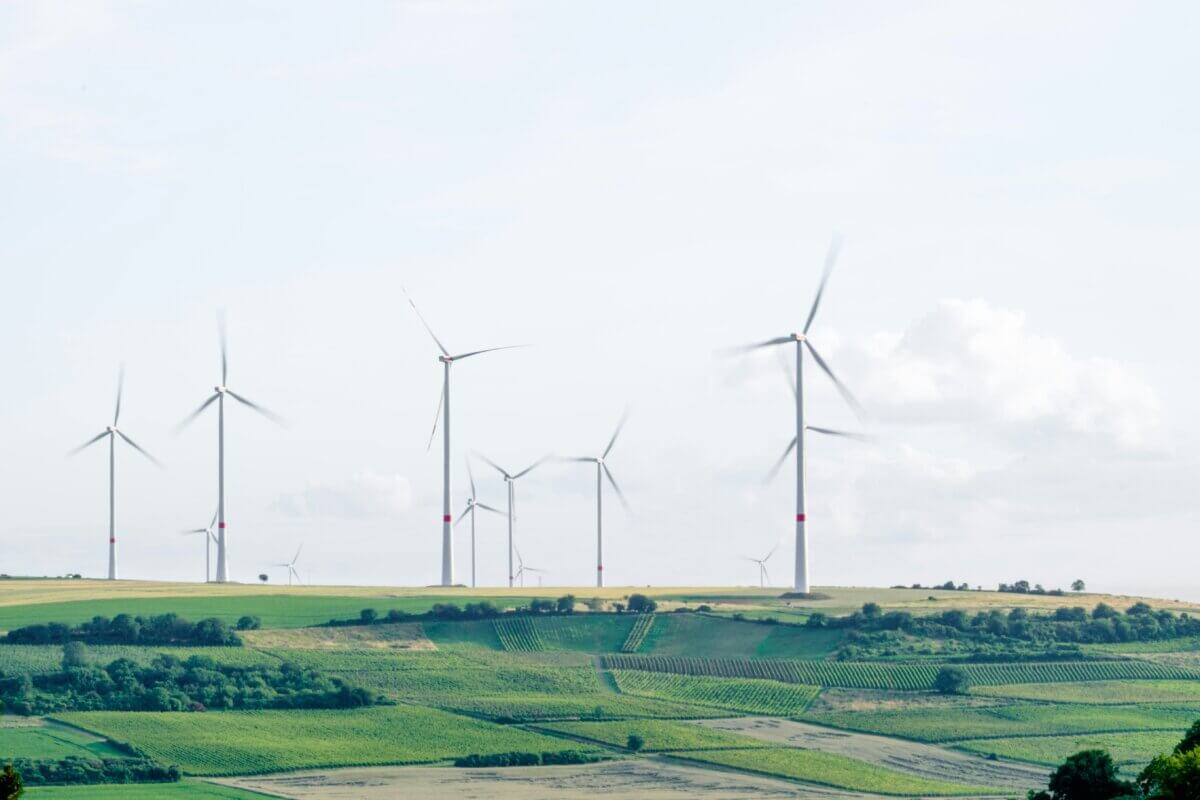Always something to do with Hornbach… DIY store chain grows against all odds by sticking to its mission and vision
The German DIY-store family Hornbach is a success story: unprecedented continuous growth and expansion of locations, while consumer and professional also make good use of the online delivery of high-quality goods. But Hornbach also experiences a lot of resistance and is constantly engaged in a dynamic force field. ‘Everyone has an opinion about us’, general director Evert de Goede and business director Stephen Smits say.
When Evert de Goede opens a new Hornbach store in Nijmegen, Almelo or Rotterdam, he’ll undoubtedly recall all the difficulties that were overcome to get this far. DIY stores encounter a lot of resistance from competitors and retailers, while also recent elusive developments can obstruct growth. A store in Geleen for example, took twelve years to emerge. Meanwhile, consumers are always impatient as was proven recently when Hornbach was declared best DYI store for the fourteenth time and best web shop for DIY stores for the second time in a row.
For the long term
Evert de Goede, Stephen Smits and Van Doorne partner and notary Annerie Ploumen are now used to the average lead time of three to four years for the opening of a new location. De Goede: ‘The mill of resistance, costing a considerable amount of time and money, is always annoying. But I know now that we cannot open a new store in one day.’ He laughs and says he doesn’t dare to put a date on a sign that says ‘Here comes Hornbach’ anymore.
Hornbach is permanently dealing with all kinds of forces. Smits is very happy with the Van Doorne specialists, who, after having been partners for years, know how to respond to any resistance in court. ‘Hornbach faces major legal challenges in many areas. Whether it concerns the purchase of a piece of land or whether there are congested roads as a result of the opening of a new location, there is always something to do for the notaries and lawyers at Van Doorne.’
‘The mill of resistance, costing a considerable amount of time and money, is always annoying. But I know now that we cannot open a new store in one day’
De Goede thinks it’s crazy to have to go to court so often. ‘Sometimes we’re joking and say that we can call the counterparties by their first name next time we see them in court.’ Smits: ‘It already starts when we want to buy a new piece of land. This marks the start for various parties to ‘have an opinion’. The local government sells us the land, but then that same government, and sometimes also the province, comes up with a substantive reaction to our building plans. In addition, competitors have an opinion and the infrastructure is also being discussed. In the end, everyone has their reasons why they think Hornbach should not set up a store there. It is difficult to deal with all these parties without the assistance of the right experts.’
Ploumen, who has been Hornbach’s advisor for the last twenty years, recognises this phenomenon. ‘We know Hornbach very well and we make sure that the head office in Houten doesn’t have to worry about the legal challenges and the field in which we operate together. That’s what they can expect from us. Besides the purchase and transfer and everything that comes with it, we also deal with administrative law, competition law and privacy issues. Lawyers Cees Kniestedt and Mark Moolhuizen are taking action as soon as the procedures after the purchase of a piece of land start. Elisabeth Thole and Sarah Beeston handle the privacy and competition matters. A typical Hornbach file is a file for the long term.’ The biggest expansion occurred during the crisis, when local governments wanted to sell large plots of land they had purchased in the past. Hornbach then struck. De Goede: ‘At the time, we were an interesting party for the municipalities, because we bring in between 180 and 210 new jobs per site and indirectly another 150 employees.’ The argument that Hornbach causes empty shopping streets is dismissed by De Goede. ‘We don’t sell diapers or washing machines, like some competitors do. The vacancies have other causes: stores need to add experience and expertise to their products. When the consumer doesn’t need that or a store doesn’t have it, shopping goes online.’
Loyal employees
In the end, going to court doesn’t harm Hornbach. For example, the people in the Dutch province of Limburg welcomed Hornbach to Geleen by showing their support on the public gallery in council meetings. ‘They already knew us from Kerkrade, our third location in the Netherlands. Once we opened the new store, we saw this loyalty again. If we look at it like that, an annoying and lengthy period of litigation is almost like positive advertising for us’, De Goede concludes.
‘In retail, you can never sit still, not for one day’
‘The local ties with Hornbach are strong’, Ploumen also knows. ‘Not very strange when you see how good the company is to its employees. They often come from the area, get a proper training and get the opportunity to set up the store themselves in the period before the opening. This makes the official opening a true celebration for the employees to attend as well, and not some obligation.’ However, this loyalty didn’t come out of nowhere.
Ploumen: ‘Hornbach is very consistent in its business operations. It invests in making the right choices and it constantly monitors the needs of consumers and professionals.’ Smits also indicates that this is a success factor. ‘We’re holding on to our principles and our story, and we put a lot of energy in this. We think the quality of our employees is very important. On average, the age of our people on the floor is a bit higher than in other DIY stores. One of the reasons for this is that some of them have worked in the construction sector themselves for more than twenty years. Expertise comes first. In addition, the sixteenth customer of the day must be able to get the desired product just as easily as the first customer of that day. These core values may be conveyed through marketing, but not before they are internalised first.’ Hornbach is a pragmatic organisation, despite the fact that the head office in Houten has to deal with the parent company in Bornheim (Germany). Both offices are working together on procurement and advertising, but the Dutch branch claims to have sufficient freedom.
Hornbach has been dominant online for five years. ‘Our multi-channel approach is a great success’, Smits says. ‘The web store is growing so fast, that we have to look at alternative logistic solutions for the future.’ Ploumen points out that the online channel also faces a few legal challenges. ‘One has to look carefully at the conditions, such as the way the ‘lowest-price guarantee’ works, or how the privacy of the customers is guaranteed.’ De Goede adds: ‘Anyone can put a product in a box. It’s about the way you manage to deliver, for example, a big and breakable drywall at someone’s doorstep. That’s where we can differentiate from our competitors.’
Online strategy
Hornbach has been dominant online for five years. ‘Our multi-channel approach is a great success’, Smits says. ‘The web store is growing so fast, that we have to look at alternative logistic solutions for the future.’ Ploumen points out that the online channel also faces a few legal challenges. ‘One has to look carefully at the conditions, such as the way the ‘lowest-price guarantee’ works, or how the privacy of the customers is guaranteed.’ De Goede adds: ‘Anyone can put a product in a box. It’s about the way you manage to deliver, for example, a big and breakable drywall at someone’s doorstep. That’s where we can differentiate from our competitors.’
‘Hornbach invests in making the right choices and it constantly monitors the needs of consumers and professionals’
Success story or not, several large retailers have disappeared into the history books in recent years. De Goede is still surprised about this: ‘What’s the vision of a foreign retailer that comes to the Netherlands? Why don’t they change and look at the needs of their target group?’ Is Hornbach future-proof? Smits: ‘We think so. We have a unique position in terms of scale, expansion possibilities and the way we approach our e-commerce. One thing is certain: the Dutch will continue to refurbish their homes and they prefer to do it instantly. Physical store or online: expertise and personal advice is still important.’ Smits and De Goede are therefore not afraid of automation. ‘When the cashier disappears because we implement a elfcheckout counter, we train this person to be an advisor at the shop floor. The human factor doesn’t disappear from our stores.’ De Goede: ‘In retail, you can never sit still, not for one day. You have to keep developing because if you don’t, you’re finished.’





